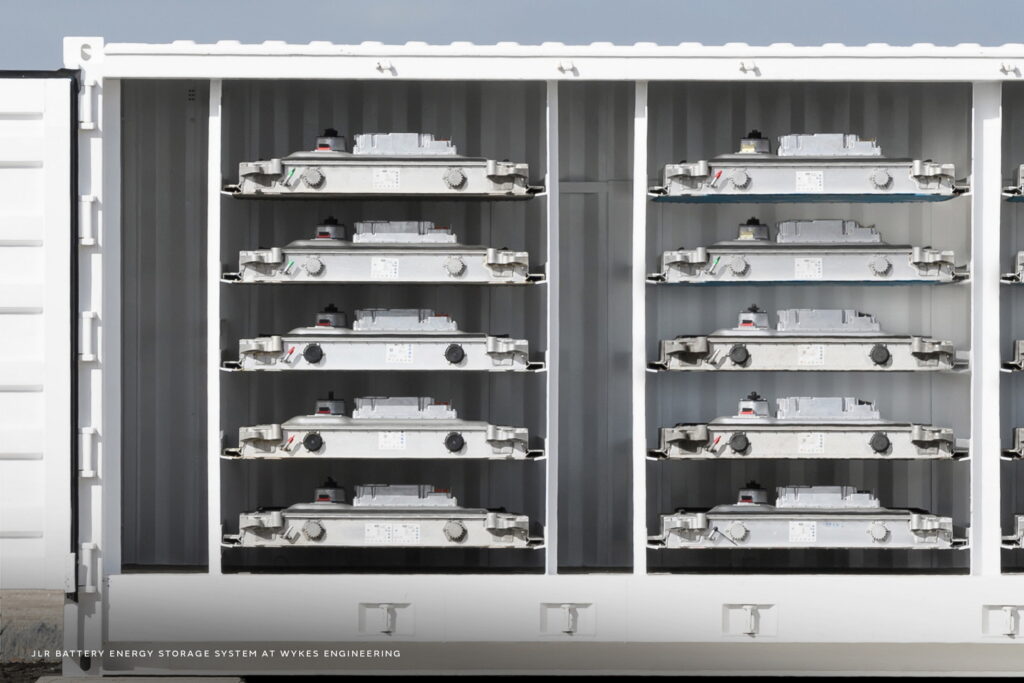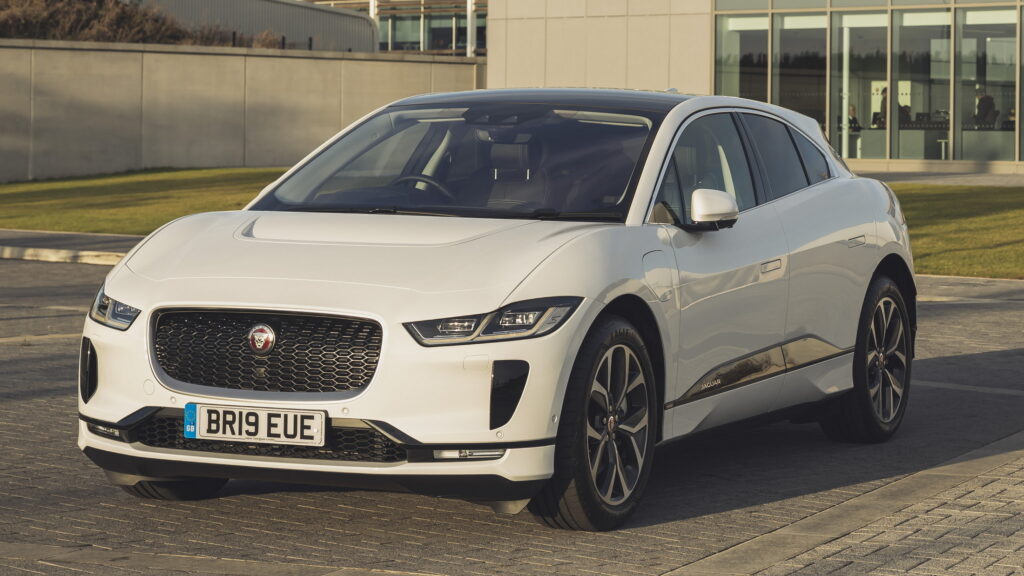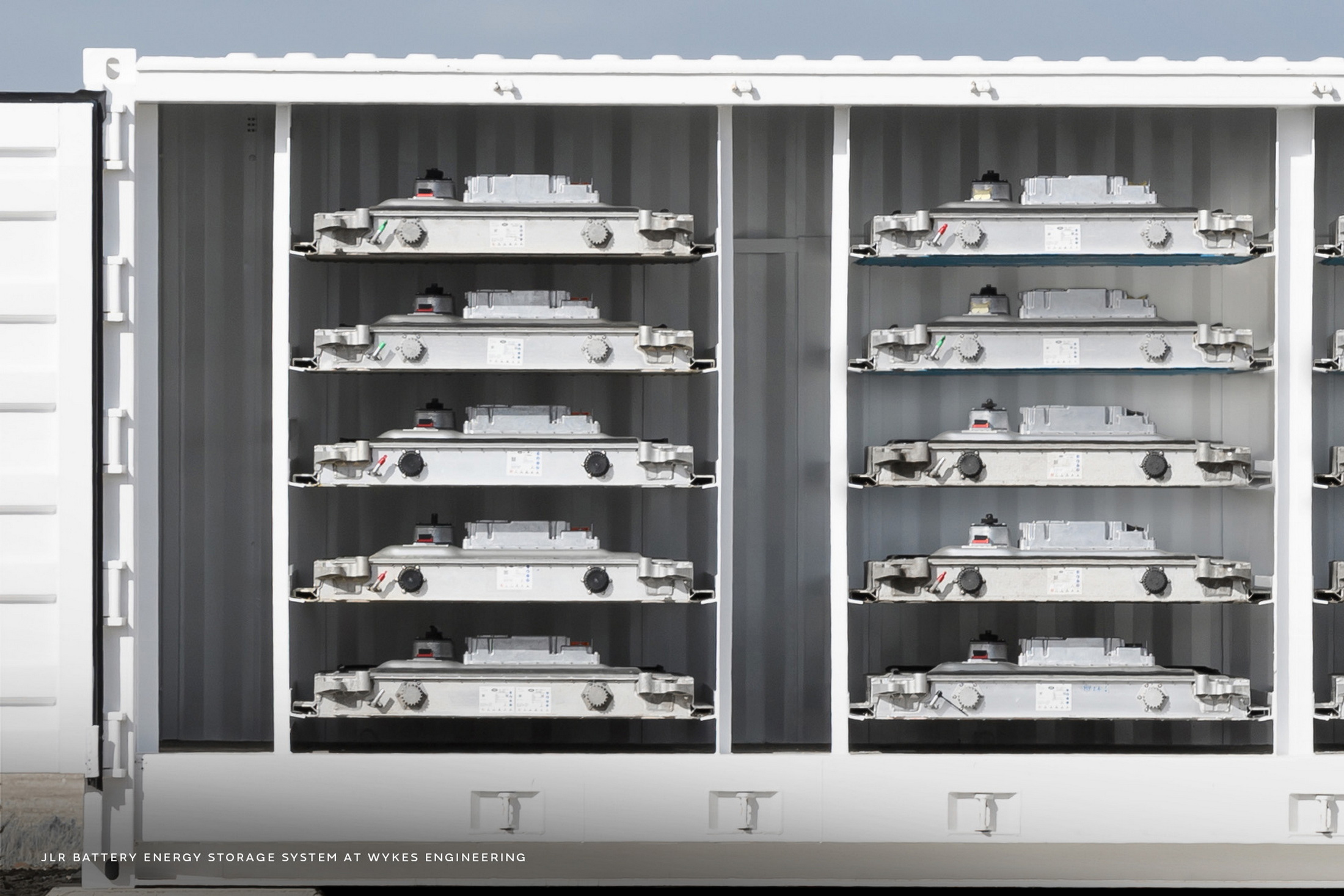Even after they stop being useful to drivers, electric vehicles’ batteries typically still have 70 to 80 percent of their residual energy storage capacity. That’s a lot of potential that can continue to be put to use in projects like the energy storage projects for a national grid, which is exactly what JLR has started doing.
By partnering with Wykes Engineering Ltd, the automaker has found a way to turn old Jaguar I-Pace battery packs into large scale energy storage solutions for the United Kingdom. The efficient system does not require the batteries to be reengineered at all, and simply needs the packs to be removed from their vehicles, slotted into a rack, and plugged in.
“Our EV batteries are engineered to the highest standards and this innovative project, in collaboration with Wykes Engineering, proves they can be safely reused for energy sector application to increase renewable energy opportunities,” said Francois Dossa, JLR’s executive director of strategy and sustainability. “Working together with industry-leading partners, we are developing a complete EV ecosystem, from batteries to charging, supporting our net-zero transformation.”
Read: Rimac Energy Brings EV Hypercar Know-How To Static Energy Storage Market

When 30 battery packs are collected, they can be turned into a Wykes Engineering Battery Energy Storage Solution (BESS) that can store up to 2.5 MWh of energy at full capacity. With these, energy generated by windmills and solar panels can be stored and redistributed when it is needed.
That’s important, because renewable energy systems like these work only when nature allows, not when people need power. That’s a problem at night, when solar and wind energy generation are low but, for related reasons, humans needs lights and heat. Fortunately, during the day, these methods typically generate a surplus of power, which can be stored in big batteries, and then sent out to homes when it is needed.
JLR plans to provide Wykes Engineering with 90 batteries by the end of this year, enough to store 7.5 MWh of energy, or to power 750 homes for a day. So far, the batteries are being sourced from prototypes and engineering test vehicles, but as the fleet of production I-Paces matures, more and more batteries will need new homes.
The automaker anticipates that supplying second-life vehicle batteries for stationary applications could create a global value of over $30 billion by 2030.









